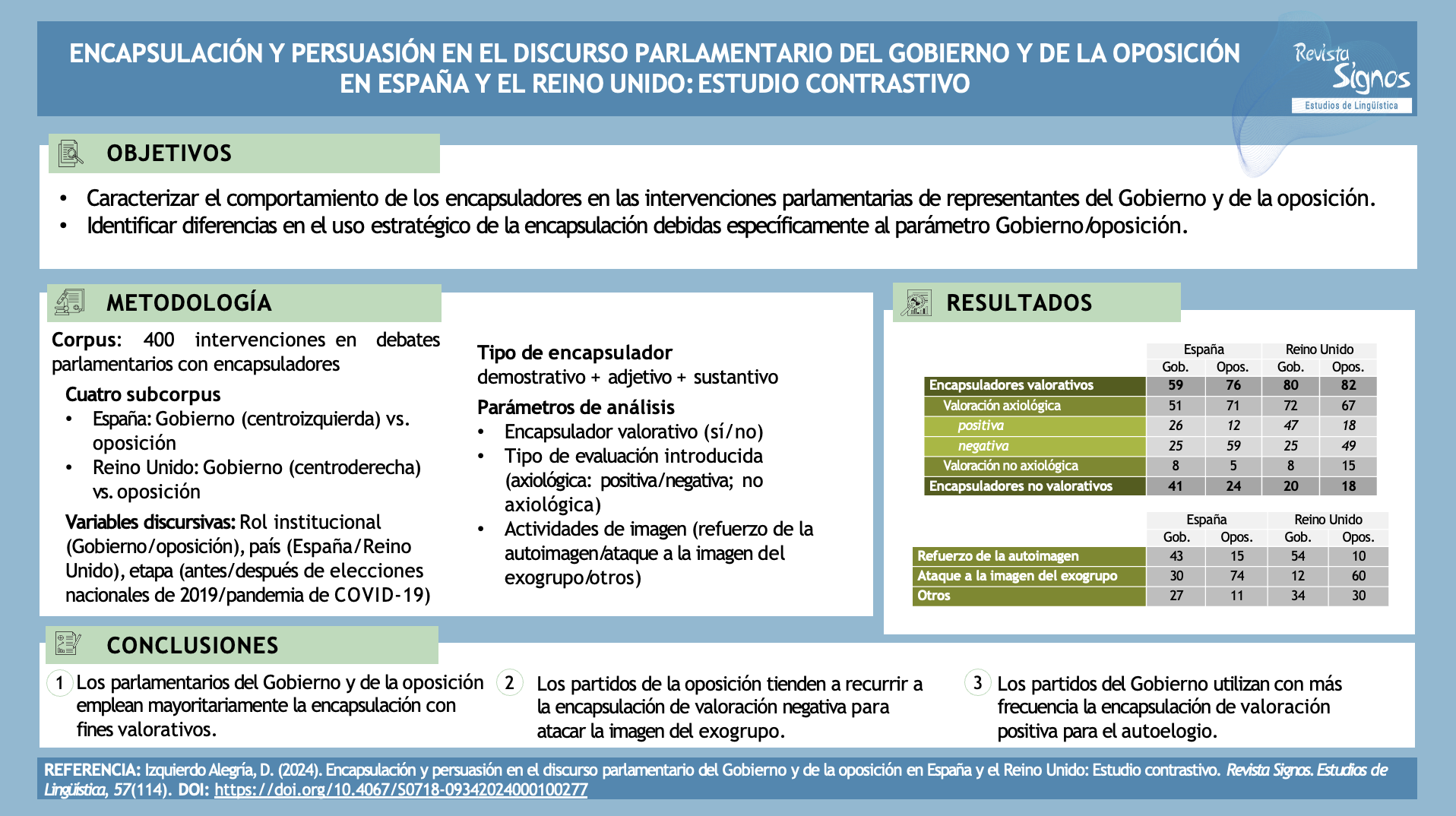Retrospective Labelling and Persuasion in Parliamentary Debates by Members of the Government and the Opposition in Spain and United Kingdom
A Contrastive Study
Keywords:
encapsulation, evaluation, parliamentary debate, facework, persuasionAbstract
Encapsulators, or retrospective labels, are cohesive mechanisms that compress the propositional content of a stretch of text. When they include lexical items, they may introduce implicit evaluations that affect their antecedent. They have been subject of analysis in different genres, including parliamentary debates (Botley 2006; Autor 2013a; Ribera 2016, 2019; Ribera & Marín 2018; Marín & Ribera 2018; Vajnovszki 2022), where they seem to play a major role as persuasive devices. Studies on encapsulation based on parliamentary corpora focus on different parameters, but they have not delved into the influence of a specific variable that seems to generate important divergences in the use of encapsulators: if the speaker is a member of the Government or of the Opposition. The aim of this article to identify differences in the functions performed by encapsulators due to the parameter Government vs. Opposition. This study is based on a corpus of 400 texts containing an encapsulator composed by a demonstrative, an adjective and a verb that have been selected following a Corpus-assisted Discourse Studies approach (CADS) in the Spanish and British versions of the ParlaMint corpus (Erjavec et al. 2023). Results show that members of the Opposition use more frequently encapsulators that introduce negative evaluations in speeches that attack directly the opponents’ images, whereas members of the Government tend to exploit this resource for self-praise through positive evaluations.

Published
How to Cite
Issue
Section
License
Copyright (c) 2024 Revista Signos. Estudios de Lingüística

This work is licensed under a Creative Commons Attribution 4.0 International License.
Copyright agreement:
Authors who have a manuscript accepted for publication in this journal agree to the following terms:
Authors will retain their copyright and grant the journal the right of first publication of their work by means of this copyright agreement document, which is subject to the Creative Commons Acknowledgment License that allows third parties to share the work provided that its author and first publication in this journal are indicated.
Authors may adopt other non-exclusive license agreements for distribution of the published version of the work (e.g., depositing it in an institutional repository or publishing it in a monographic volume) as long as the initial publication in this journal is indicated.
Authors are allowed and encouraged to disseminate their work via the internet (e.g., in institutional publications or on their website) before and during the submission process, which can lead to interesting exchanges and increase citations of the published work (read more here).


